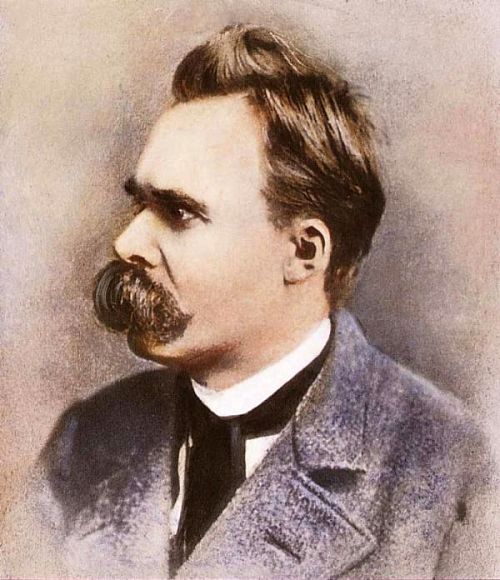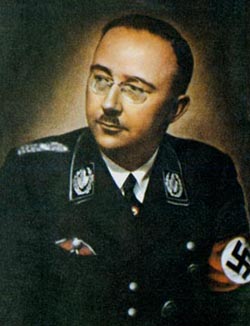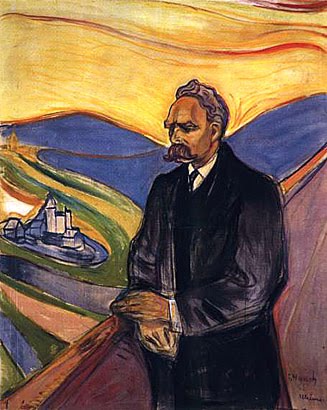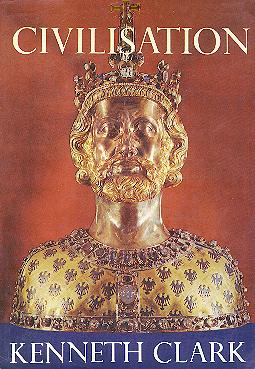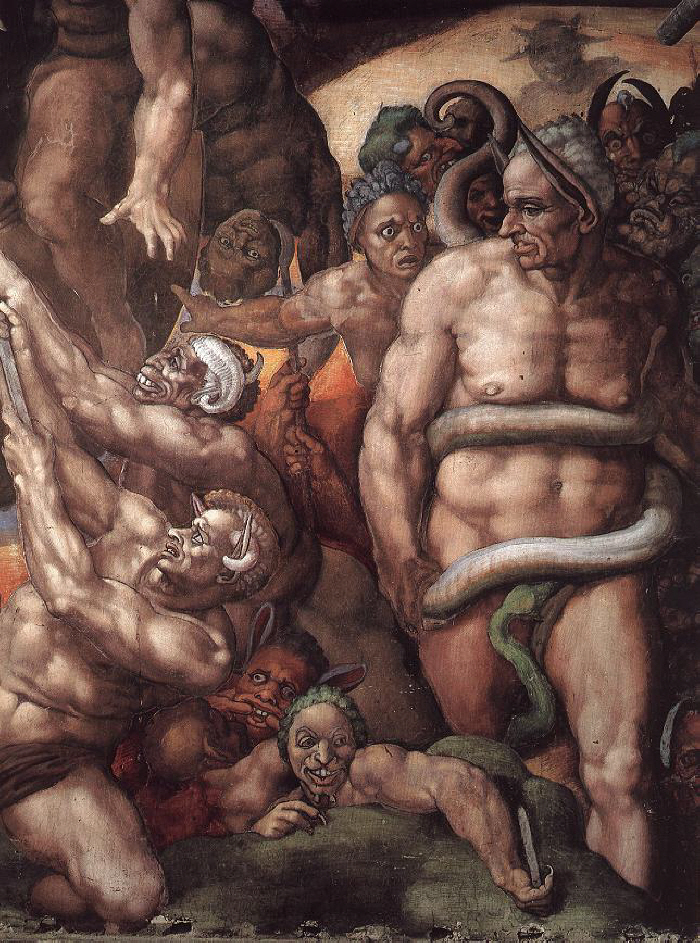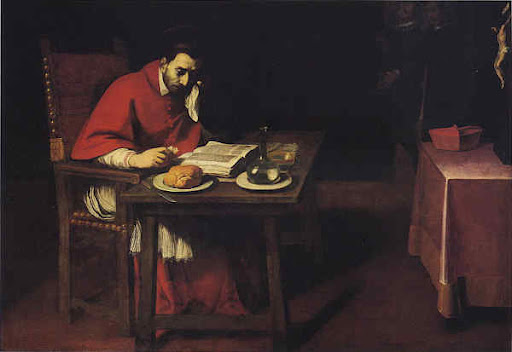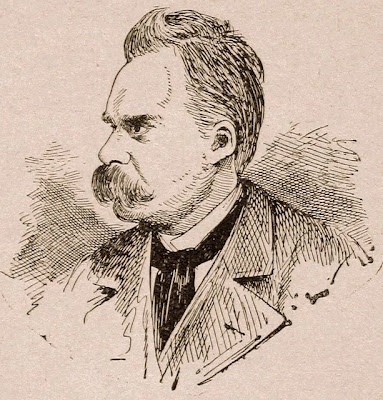“In England one must rehabilitate oneself after every little emancipation from theology by showing in a veritably awe-inspiring manner what a moral fanatic one is. That is the penance they pay there. —We others hold otherwise. When one gives up the Christian faith, one pulls the right to Christian morality out from under one’s feet.” —Nietzsche
Editor’s note: The below text has been excerpted from an August 2007 blog entry by a blogger who used the pen name ‘Conservative Swede’ and a long July 2009 exchange on the forum Gates of Vienna. Conservative Swede said:

We are witnessing the historical demise of Christianity. When a star dies, in its last phase it expands into a red giant, before it shrinks into a white dwarf. Liberalism is the red giant of Christianity. And just as a red giant is devoid of its core, it expands thousandfold while losing its substance and is about to die. The world I live in consists of Christians and liberals. It’s their world and I do not belong to them. I leave their limited wars, knee-jerk Islam apologism and World War II mythology to them. They are not about to change. On the contrary, they are continuously generating new problems with their way of acting.
There were certain sites, certain bloggers, even certain countries, that I had put hope in. But now it has become clear that they are all part of the same big train of lemmings. Bye bye! Denmark, nope. Brussels Journal, nope. View from the Right, nope. Gates of Vienna, nope. This is the way it goes in the world of liberals and Christians. It’s their world. I can do nothing but sit on the side and laugh at it. They are too stuck in their inner fears and hang-ups to be able to do anything useful. They will do what they are programmed to do: demise. These people are just not prepared for a proper fight. They are too much driven by superstitious fear and emotions. And there is not exactly anyone else around.
So what’s the future for people like me? Because even if I belong nowhere politically, I belong somewhere socially and ethnically. Well, the world is being homogenized. Tomorrow the whole world will be like the Third World. People like me, of European ethnicity, will have no home, no nation. We will live like the Jews as elites in other people’s nations (preferably a non-Muslim nation).
* * *
I have written: “People today live in a historyless, now-bubble-world, and have forgotten about all previous such complete [axiological] reversals, many of which happened in the last century,” therefore the widespread and deep sense of hopelessness, I forgot to add.
It’s hard to conceptualize a situation outside of the bubble, or the bubble not being there, when living inside of the bubble. However, history provides us with numerous examples of such reversals, of bubbles bursting, and of course new bubbles being built (we are bubble mammals after all). This is my happy message, my gospel. People just need to let go their precious beliefs and myths, these huggy teddy bears. When deeply invested in the core beliefs of the bubble, it becomes impossible to look outside of the bubble, to think of a world without the bubble, and everything looks utterly hopeless. Well, it’s not. On the contrary, the bubble will burst.
Unlike how it is presented, the relation between left and right is not symmetrical. Instead the left is the norm, and the people to the left are the holy people of secular Christianity. The right is just dancing along, effectively not being much more than an alibi for the whole setup, dancing in circles around the left, who is the one setting up the direction of “progression.” Occasionally pulling the break, but never setting up a new general course. The direction of the course is built into the paradigm, and never fundamentally questioned by the right.
Another evidence for the asymmetry between left and right is how right-wingers fear and loathe to be associated with any person or organization even slightly to the right of themselves (they feel that this would totally undermine their reputation), while willing to make connections magnitudes further into the left. Such as appearing in left-wing media, which often makes these right-wingers hilarious, since they feel they have gotten a stamp of approval thereby; while they can be paralyzed by fear of the thought of being published in a right-wing magazine just slightly to the right of themselves.
America is seen as right-wing in the current political theater. However, historically America together with France has been the main force in pushing our civilization to the left.
After World War II European patriotism was seen as the root of the evil, which had to be held down. The only permitted patriotisms were American and Israeli. Britain and France got away with some, but after the Suez crisis in 1956 they were effectively out of the picture too. Now offensive military actions were only accepted from America and Israel.
In the 1950s and the 60s America and Israel were celebrated as model countries of progressivism. European conservatism had been rooted out in the cultural revolution imposed by America in Western Europe. But the Europeans learned fast. First they learned to follow the American example and see America as the model country. The Europeans could pick this up fast since the ideas were rooted in the Christian gospels. But soon they learned that America didn’t live up to code of moral goodness that they had imposed on the Europeans. And left-wing anti-Americanism was born. And to be precise, even anti-Americanism wasn’t born in Europe but also imported from the US. The problem for America was that in their quest to end all “evil” empires, they had effectively become the big empire themselves, for example by inheriting the role of maintaining the Pax Britannica. Then they had to do all the sort of things they had taught the Europeans were wrong. The Europeans soon learned to beat the Americans in their own game, becoming the leading in progressivism and “holier than thou.” And curiously enough, thus America ended up being seen as right-wing. The original right-wing had been rooted out in a collaboration between America and the European socialists in the wake of World War II. The turning point came by the end of the 1960s—the Vietnam war and the Six-Days war. The image of America and Israel shifted, and they were no longer seen as the model countries of progressivism but as “evil” right-wing countries.
We should remember that our progressivist paradigm (which is always going left) is based on Christian ethics. And Christian ethics means the inversion of values. So it’s the weak that is considered good, while the strong is considered evil. In World War I and World War II America had defeated all the strong (and therefore evil) European empires. The job was completed in the Suez crisis in 1956 by turning against their former allies. But you can never win with Christian ethics, because now America became the strong one, and therefore the evil one. So now American and Israeli patriotism becomes highly questioned and opposed, though not based on restoring any other patriotism but by going even deeper into deranged progressivism. Thus, in effect, American and Israeli patriotism are still the only permitted patriotisms. Surely now the holiest priests of our leftist paradigm condemn the actions of America and Israel. But in effect it is tolerated, while if any other (white) country acts militarily offensively it’s seen as a major global crisis (e.g. Serbia, Russia). So this gives a background to why Geert Wilders, Vlaams Belang, etc., have a pro-American and pro-Israeli profile, and even stress these patriotisms more than their own.
When the threat of Islam is added to the historical situation I gave above, there are westerners who wake up from their deranged progressivism. But they generally revert back to the 1950s (myself I reverted to before World War I). In the face of the Islamic aggression their patriotism gets heightened. But this is a patriotism based on a narrative of hate of Germany and Russia.
So when intensifying this American patriotism in order to build-up the necessary hate against Islam, the hate against Russia and Germany heightens simultaneously. There does not seem to be a way to slide this parameter up without this happening. NATO was after all built on the motto of “Keeping Russia out, Germany down, and America in.” And since this narrative in its previous step is based on the de-legitimization of European patriotism in general, and how hate and demonization of Germans is the blueprint for white guilt and self-hatred, we have a more general problem here too.
* * *
There’s surely no way to stop the chaos coming. But just as surely, from the ashes of the chaos, a fantastic renaissance will grow. We will prevail, severely hurt yes, but with an ironclad inspired spirit. I just hope the chaos will start soon enough, so that I will be able to live when the turnaround happens.
My conclusion is that we’ll have to revert far back in history in order to find something sustainable to build on, to cut off the rotten and infected areas. For some things a hundred years, for some a thousand years. It’s definitely not enough to revert the social revolution of the ’68.
Gates of Vienna’s Ned May said:
Part of the modern Liberal ideal is the foolish notion that we can simply abolish by fiat millions of years of evolution, thousands of years of culture, and centuries of tradition.
Conservative Swede responded:
This is a very important sentence which conveys so very much, if we just examine it closely. Not only the liberals, but also most people (anti-liberals), who see and fear the fall of the liberal world order, have forgotten that these things cannot be erased.
But neither the rise nor the fall of liberalism can take away millions of years of evolution, thousands of years of culture, and centuries of tradition. This is what Chechar refers to as my optimism. It’s just following the conservative principle you gave here. But unfortunately the effect of the current belief system is so strong even on anti-liberals, that they cannot see that.
So it’s the liberal layer (on top of evolution, culture, and traditions) that will get peeled off, together with those traditions that led to liberalism in the first place.
The fall of this liberal world order will hit us hard (together with the destruction that liberalism has already caused). But we won’t suddenly just disappear. And as long as we are around we have millions of years of evolution, thousands of years of culture, and centuries of tradition on our side.
Even if there would be only 100 millions left of us, we are the best people in the history of mankind. As Huntington pointed out, we have always been superior in the ability to apply organized violence. As soon as the will power is there, we can achieve anything we please. We can rule any continent where we choose to live, as long as the liberal layer gets peeled off. And it’s bound to come off, since it’s just a cosmetic layer. The reason that it has not come off yet is that it has not yet become obvious to the collective mind that it has failed. But that is about to change.
* * *
Norse mythology is a much more useful mythological narrative than Christianity, which does not only mean adherence to universalist individualism and the importation of a foreign god (and in its final stages the importation of a lot of other immigrants), but also has a mythological narrative where the survival of our own people hold no significance whatsoever.
The only people that are guaranteed to survive until the end of days in Christianity are the Jews. Swedes, Italians etc., are of no significance whatsoever. We see all these tenets of Christianity manifested around us today: even in how the struggle for ethnic survival of the Jews is accepted within our current paradigm, while it is not accepted for the other people of our civilization. Each ethnic group needs her great mythological narrative, starting with the birth of her people and guaranteeing their existence until the end of times. Without such a narrative the dissolution of the ethnic group eventually becomes self-fulfilling: there’s nothing holding it together.
We see this happening around us in the very now with eager work to dissolve our countries and ethnic groups. In Christianity the Germanic people cannot (as a people) have a relation with god, only the Jewish people has. Germanic (and other) people can only have a relation with god as individuals. People are directed by myths more than anything else, so with a narrative where your ethnic group is of no importance, it will eventually become self-fulfilling (i.e., the opposite effect of self-confidence as a group).
A commenter said:
In that case, I would be very interested to hear what you propose should be done to save western civilisation.
Conservative Swede responded:
And there is your assumption again: that the Western Christian civilization should be saved, that it can be reformed, be mended; while I’m assuming that the current order, the current belief system, will self-implode. And as the current order is the last and terminal phase of Western Christian civilization, which has reached a dead end, this means the end of Western Christian civilization as such. Yes, we are seeing something like the fall of Rome before us.
I’ve been clear about this from the very beginning. For example, three days ago I wrote: “Likewise many people, who are ideologically invested in the current paradigm instead of in their ethnic group, will see the fall of the Western Christian civilization as the end of the world; commit suicide etc. But instead the fall of the Western Christian civilization should be celebrated. This is the paradigm that stands in the way of our saviour. This is the key knot in need to be untied.”
Yes: the Western Christian civilization is exactly the problem, and the problem is solved by it going away.
What we should hold on to are our ethnic groups and European civilization and culture in the deeper sense. Western Christian civilization is a novelty and now it failed. Western Christian civilization is just the tip of that iceberg. It’s just a way of politically organizing our peoples. We should not save this format, but save the matter.
The Western Christian civilization is what happened when Germanic people met Christianity. But nothing lasts forever. Quite as the Roman Empire it can be compared with a fruit, going through all the stages: bud, flower, incipient fruit, green fruit, ripe fruit, overripe fruit, rotten fruit. With this I’m saying: (1) indeed Western Christian civilization has meant many good things, and (2) it’s all over now.
It is unsustainable for Germanic people to keep Christianity. It would indeed mean their death. And since the Western Christian civilization is all about Germanic people meeting Christianity, the necessary turnaround for Germanic people also means the definitive end of Western Christian civilization. Africans and Italians sticking to Christianity does not make a Western Christian civilization.
When I talk of Christianity I use it in the same sense as Huntington or Qutb. That is, it doesn’t matter those who claim to be atheists, they are equally much Christians in this perspective. In fact, you will find that they stick to Christian ethics even stronger than the nominal Christians: trying to be holier than thou, as if trying to get in line before the nominal Christians to the heaven they don’t believe in.
Medieval Catholicism was nicely mixed and balanced with Roman and Greek components. The explosive and revolutionary message of the gospels was kept secret from the general public. The Protestant Reformation changed that. Christianity became purified into its Hebrew component, and the explosive and revolutionary message of the gospels were set free. This purification was taken even further, and completed, by the Puritans and the Quakers that left across the Atlantic, to found America. And these are the people who rule our civilization today.
There are several reasons why Christianity leads to secularism in its latter phases. Let me get back to that if there is interest, since this is becoming very long as it is.
Secular Christianity has thrown out god and Christ, but keeps the Christian ethics (inversion of values etc.). And the Christian ethics actually gets heightened and unfettered in Secular Christianity. (I have written much about that in my blog.) With Christ as part of the equation, the Christian ethics of the Gospels became balanced. Humans were seen as imperfect and it was Christ who covered for us with his self-sacrifice. In Secular Christianity each person has to be like Jesus himself, doing self-sacrifice, since there’s no other way to realize Christian ethics. On top of that, with the Industrial Revolution and the surplus it created in our societies, we came to the point where all the good deeds of Christian ethics could finally be executed by giving off our surplus to all the poor and weak foreign people around the world: food, Western medicine, and other aid.
Thus the Western Christian civilization caused the population explosion in the Third World. It is entirely caused by the Western Christian civilization, since these Third World countries were completely unable to do this themselves. Christian ethics commands that every single human life should be saved if possible. Before, more than half of the children in Third World countries died. Now virtually all survive, and we have the population explosion.
What this will lead to is the following:
With the dollar collapse and the complete breakdown of our economical (and then political) world order, mass starvation will spread like a wildfire across the southern hemisphere. This since their population numbers are not supported by themselves, but entirely backed by us. It will all fall apart.
So the concrete effect of Christian ethics here is to make the number of people that will die in starvation and suffering as high as possible once it hits (we are speaking of billions thanks to Christian ethics). Only the devil himself could think out such a brutally cruel scheme, and Christian ethics of course, in which case it’s according to the idiom “The road to hell is paved with good intentions.”
But that’s not enough. This mass starvation, where we can expect something like two thirds of the people dying in the Third World countries, will slash these societies into pieces, and they will meet a complete breakdown.
In the alternative scenario, where the Christian ethics would have kept its fingers away, these countries would have supported themselves: every year many children would have died at a pretty constant pace. But this is a stable phenomenon that does not at all threaten the stability of their societies. When the Western economical order falls apart, they would not be the least affected.
But Christian ethics cannot stand the sight of little brown children dying. They must help them, or they will freak out. They cannot keep their fingers away. So they are dooming them to mass starvation in the billions and complete breakdowns of their societies. This is the concrete effect of Christian ethics.
At this point it wouldn’t help putting back god and Christ into the equation. Instead we need to leave Christian ethics.
I have already stated how Western Christian civilization = Germanic people + Christianity. I will now clarify why specifically Germanic people need to leave Christianity.
Look at the phenomenon of clan mentality around the world. In many places around the world it is strong, in Europe it is not. But even within Europe there are clear differences. Indeed we find clan mentality in Southern Europe, while there’s none of it in Northern Europe (among Germanic people).
There are historical reasons for this. In the cold north people lived far apart. Human contacts were few, and strangers were therefore treated with friendliness. This was the best survival strategy in this context. However, the Mediterranean area was crowded, and there was always competition about land and resources. The best survival strategy in such a context was to stick to your clan, in this tight competition.
The whole point of Christian ethics, when it works well, is to have a balancing effect on the morality of people. In the Mediterranean area it had a balancing effect on the natural clan mentality, leaving a good result. However, Germanic people, as described above, have a natural altruism. When combined with the unfettered Christian ethics of the latter stages of the Western Christian civilization, it creates an interference that goes completely out of bounds. The morality of Germanic people has reached a point where it has to be balanced back, or we will perish. To create this balance Germanic people have to leave Christian ethics. (Romance and Slavic people can keep Christianity. It’s not a matter of life or death for them.)
What we are witnessing in the present time is the great tragedy of Germanic people.
With the lack of clan mentality, we find that Germanic people are the ones that most faithfully turn their loyalty towards the nation. But due to the inherent universalism of Christianity, we see in the current incarnation of Western Christian civilization how nations are considered illegitimate and gradually being dissolved. The nationalist loyalty of the Germanic people becomes redirected to universalist loyalty; still lacking of clan mentality.
Germanic people do not use the power of their family to solve problems. They go to a higher level, the authorities. To use the power of your family to solve a problem is here considered a sin, we are supposed to abide to the law. In Italy or Spain people do use the power of their family to solve problems.
There is an abundance of stories in blogs from Northern Europe of kids who go through their whole school time being beaten up by Muslim on a weekly basis. The furthest the parents of these children would do is to bring up the problem with the authorities (and possibly having a “dialog” with the Muslim parents). Which of course will do nothing about it, since the belief system of the authorities doesn’t allow for it. And even so the parents never use the power of their family to deal with the problem. They are programmed to abide to the law and the order.
I cannot see this happening in Italy or Spain. There is a whole different mentality. There would be an outrage, and the whole family would be engaged in the matter. Mostly not going into mafia methods, but in some places yes.
Germanic people are simply wired the wrong way to being able to survive in a multiethnic context. Or to be exact: Germanic people adhering to Christian ethics are. We managed fine in the age of the great migrations and as Vikings.
Now we are entering a world of multiethnic societies at a planetary level. And the Germanic people adhering to Christian ethics are constitutionally unfit for this. Unless we leave Christian ethics, we will perish. Or rather, those who cling to Christian ethics will perish, according to the law of the survival of the fittest.
Leaving Christian ethics has nothing to do with becoming secular (as I explained above). To the contrary, it makes it worse! What is needed is to introduce another great mythological narrative into the minds of the Germanic people. This is the only way to replace the moral grammar of Christianity. Something with roots in our long history. This must be done by political means, by a regime with such a focus. But given that focus, it’s not such a big thing to achieve. There are numerous historical examples of how to do it. And it only takes a generation to make the change (even less). And in a dire situation, after a major trauma, it will be even easier.
And thus we are speaking of the deepest level of a paradigm change here. Our very concept of good and bad, our moral grammar, has to be transformed. In sort of perspective, even the apparent moral tautology “We should strive for what is good, and fight against what is bad” no longer holds true.
Our very concepts of good and bad is what has to be transformed. It’s hard to think outside of this box. But that’s the whole point of the word paradigm. It’s a box that it is virtually impossible for people in general to think outside of. I recommend reading Thomas Kuhn’s The Structure of Scientific Revolutions for a deeper understanding of the concept paradigm. It’s truly a mental box we are trapped within. In the same way we are about to witness the transformation of our whole grammar of morality, quite as our grammar of morality was different before the Age of Christianity.
When the paradigm shifted from Newton to Einstein, it didn’t mean the end of science. I just meant the end of a scientific era, which became replaced with a new one. In the same manner the fall of the Western Christian civilization does not mean the end of European civilization in the larger sense. It just means a new era. Quite as when the Roman-Greek civilization was replaced by the Western Christian.
Commenter said:
The latter, being literalists, conceived of themselves as the direct successors to the ancient Israelites who had been given divine authority to kill the Canaanites and establish Israel. The Protestants looked on themselves as the New Israelites and the Native Americans as the New Canaanites to be wiped out.
Conservative Swede responded:
It’s sad indeed that Christians have to imagine themselves as Israelites in order to become truly good fighters, which implies effective total war, and the psychology of will power to win at any cost.
Once again it is the same pattern of Christianity that I discussed above, when discussing permitted patriotisms. Our own ethnicity is utterly insignificant in the Christian narrative, while the Jewish ethnicity holds a pivotal position. So Christians have to use this substitute ethnicity to find true confidence and strength.
Good total war has been waged by Christians when imagining themselves as Israelites aiming for building the New Jerusalem. They can also fight limited war in the name of the universal good, or for the sake of Israel (for example the crusades).
But war by Christians in the name of their own ethnicity is considered illegitimate; well, not even of importance. In Christianity we cannot be ourselves. We have to pretend we are someone else.
I still think the Russians can use their Christianity in an efficient way, just since their Christianity hasn’t been washed through the Enlightenment, quite as the American pilgrims and the Boers, discussed above, hadn’t. Nor Spain of La Reconquista, of course. But we can stay assured that the Christians having been washed through the Enlightenment—and then the Industrial Age, liberalism and secularism—won’t be able to see themselves as Israelites. So this strength is not coming back within the context of Christianity.
Why not be ourselves instead? Replace the current mythological narrative with one where we are ourselves. After all, that is the simple truth: We are ourselves. Christianity is based on deception and distortion of reality. Another way to go, for those unable to imagine themselves as the Israelites, is at least to make Christianity universal instead of Jewish. Such as we saw recently here at Gates of Vienna in how many people in Poland for example do not see Jesus as Jewish. There’s no way to win within the frames of Christianity…
Commenter said:
I agree that Christianity is at the end of its tether and is unable to assert itself without breaking its own value system. Probably something similar must have happened in India during Muslim invasions, where Buddhist ideas of compassion and Karma (you get what you deserve, because you produced the cause) left them completely defenseless. They indeed had no narrative that would support their collective existence.
Conservative Swede responded:
This is an excellent historical comparison. An universalist religion of goodness is replaced with the original national gods, when faced with a threat of existential magnitude.
Commenter said:
Altogether, yours is the most complete argument for the death of Christianity I can imagine, certainly more complete than what Nietzsche has ever written.
Conservative Swede responded:
Thanks, that’s a very nice thing to say. Of course, I had an unfair advantage, since I could read Nietzsche but he couldn’t read me.
Commenter said:
I am always impressed by the fact that the further North you go in Europe, where people are more Germanic, the more harmonious mastery of mind over nature you can see.
Conservative Swede responded:
Yes, we have focused on fighting nature instead of each other. All due to our historical situation. If we didn’t fight nature we died. If we hadn’t isolated our house and stored up well for the winter we died. Out of this a special kind of cooperation between people grew. A traditionalist form of egalitarianism, which apart from Sweden and Norway we only find in America (this is an interesting topic in itself, but no time for that now). However, if you put unfettered Christian ethics on top of that…
* * *
A necessary condition for such a Germanic project—and for the renaissance of Europe altogether!—is the return of Germany. Germany today is the planetary bully victim, bound and caged in many layers of chains and bars. Not permitted to show even a single shred of national self-confidence. We won’t see that until American troops have left Germany and the whole NATO regime has been reversed. But it will come. Rest assured.
Above is the first step, and, let’s say, how far I think we’ll come in this century. We will be in a situation with China as the great power. There will also be competition with Russia. Probably China will be first in occupying the oil fields around the Persian Gulf, but we will be competing with them about it.
America together with France and Britain will be utterly discredited, seen as the guilty ones for the greatest treason in the history of mankind against their own people (as Fjordman put it); while Germany was completely innocent in this, and will hold the morally superior position.
France might no longer exist, having first been overrun by Muslims, and then reconquered by Germanic people.
The United States will no longer exist. But the Confederation of the Northern US States will be a natural ally to the Germanics.
Maybe there will be something as a Germanic empire at this point. Or maybe even two, one German speaking and one English speaking. But I’m not as sure about the English speaking one (I’m not saying people won’t speak English, only that there might not be a separate empire with English as the official language).
Will American troops reside in Germany forever? No. When it comes to the imminent fall of the current order, there are too many factors in motion at the same time that each alone has the potential of making it fall: dollar collapse, ethnic civil war, Iranian nukes, weak and paralyzed leadership.
I find Germanic people boring and square, but sort of brilliant (history clearly shows that). After about a decade out in the cold, I have once again taken Germanic people to my heart because I can see their great tragedy. I think I can see their dilemma and how to solve it while at the same time it makes perfect sense for Poles, Spaniards and Celts to take an interest in this for the political stability it would give to all of Europe, once the current order falls. Without it there would be a huge power vacuum.
Who would expand into that? Russia, China, Islam? Or first Islam, then Russia, and finally China? That’s the good thing with the day the American troops leave Germany, because at that time the Germanic European will be forced to immediately build a strong military power. And you could imagine how many of the good things that we have discussed here would be catalyzed by that.
When I say that I want Christian ethics to go away, it’s not because I want to see a 180 degree turn away from it. Instead it is Christianity that ended up in steep imbalance. What I want to do is to balance things back. So what I have suggested is:
1) A new great mythological narrative where our own ethnic group is given the pivotal position; 2) A constitution where citizenship is reserved for people of our ethnic group. 3) Alien ethnic groups, typically from the Third World, that do not identify with our ethnic group, will have to be removed one way or the other.
* * *
I think it is clear that the people won’t turn away from the current belief system with less than a major catastrophe.
But this time the catastrophe is not something as benign as a “Western civil war,” but something of a higher magnitude, and of real external threats (which we are not the least prepared for). If we had only been facing something as harmless as World War I or World War II, I wouldn’t have been speaking of the end of the Western Christian civilization. If there only had been two strong sides of the West fighting each other to death, we wouldn’t have been facing this discontinuity of our civilization.
But now it is our very belief system that makes us unable to fight and defend our civilization. And the threat is external, and when we lose, it means this discontinuity. Losing here means losing our dominant position, not that everything is lost.
Our current empire will fall, that is, America, and not to another Western empire as before—since this time there is no one standing in line—but to external forces.
If we do not meet a major catastrophe within the next twenty years, we will be silently walking into our demographic eclipse, something that could indeed mean the end European civilization and the values that you have talked about. The demographic forces in motion are so great, yes exponential. Not so much our declining birth rates, but the population explosion in the Third World that we are causing and the mass immigration and demographic Jihad in our own lands. If this process continues we will end up in Diaspora as the Jews. And with white people as a mere 2-3% of the world’s population and without our own homeland, that’s indeed the end of European civilization altogether, and we can say goodbye to the manifestation of all these values that you and I cherish.
It’s the Western Christian civilization that feeds all these processes (population explosion etc.). So the Western Christian civilization is in fact the worst enemy of what I call European civilization: another reason for wanting the Western Christian civilization to go away. If it would continue a few decades more it will mean the definitive goodnight for all of us.
So to summarize: When I speak of civilization as in the Western Christian civilization, I speak of a concrete manifestation, an empire. And when I speak of civilization as in European civilization, I speak of the existence and self-government of white people, and the values and life style that is integral in our beings. But now we have come to a point where the former is the greatest threat to the latter.
In Aristotelian terms European civilization is the matter to the Western Christian civilization, which is the form. That is, white people is the matter for the current Western Christian “empire.” But now the form is suffocating the matter.
Chechar said: [1]
“It’s the Western Christian civilization that feeds all these processes.” Why do you say this? Wasn’t everything relatively okay up to the 1950s, before the radical feminists almost took away our highest divine right from us: women? If lots of women would still be with us at home having lots of beautiful kids, as the Pope likes, the present problem wouldn’t exist, would it? Doesn’t the sexual revolution is to blame for the demographic winter? And isn’t Islamization of the West a mere by-product of our dwarfing ethnicity? If so why do you blame Western Christian civilization? Rome fell precisely because infanticide (the abortion of classical times) and contraception was practiced massively since the times of Julius Caesar. However, since Constantine and Theodosius the Church made enormous efforts to stop infanticide.
I agree that a major catastrophe is needed. That’s why, as I have iterated elsewhere, every morning I wake up with yearning dreams of mushroom clouds above Western cities to wake me up—and waking up the West. But couldn’t we reject the 1960s revolution without America necessary falling?
Yes: I know you want to delve deeper into the root cause. But I still think that solid arguments based on demographic winter show us that the West took a really wrong turn in the middle ’60s. In mean, the West was still healthy the year in which I was born! (maybe because you were born after that you haven’t seen the healthy West with your own eyes). We tried to trick the god Eros through contraception and the liberation of women. We are suffering now for having messed with the laws of Nature. Our present problems with a revived Islam are Venus’ revenge. Curious, eh, that I am not a Christian—like Tannhäuser I look for the grotto of Venus—yet I admire conservative Protestants and Catholics on this issue?
Conservative Swede responded:
You need to read more carefully, because you missed my point. I repeat what I said:
The demographic forces in motion are so great, yes exponential. Not so much our declining birth rates, but the population explosion in the Third World that we are causing and the mass immigration and demographic Jihad in our own lands. It’s the Western Christian civilization that feeds all these processes.
Our declining birth rates have a slow effect in comparison with the exponential growth that the population explosion and demographic Jihad means. And it’s exactly because of Christian ethics that people, like for example you, entirely look at our own birth rates (narrowly blaming feminism etc.), instead of focusing on the much bigger and alarming problem caused by us: the population explosion in the Third World.
For the very same reason that Christian ethics abhors infanticide, it causes the population explosion in the world. It’s a deeply held doctrine within Christian ethics that every single human life across the planet must be saved if possible. According to Christian ethics it is forbidden and unthinkable to think in terms of not saving every little brown child across the planet. But the consequences of this mindset are catastrophic, not only for us but also for them, as I have already explained. But since people are so programmed according to Christian ethics, what I’m saying does not seem to enter their heads. The thought is too unthinkable to be absorbed. It’s an utter taboo.
You asked, “Wasn’t everything relatively OK up to the 1950s?” Sure it was. But the better our lives got, the more we destroyed, and the faster we destroyed it. It was exactly in the ’50s that this problem started. In the ’50s people of European descent was 30% of this planet, today we are just a little more than 10%. Not by us decreasing (in fact we are more than in the ’50s) but by the rest of the planet exploding in numbers, from 3 to 7 billion people—all caused by us.
The population of Africa is four and a half times higher than in 1950. And the population in Asia almost three times higher.
As I have already explained: With a highly developed industrial society, the Western people got a huge surplus of resources, and much more time at their hands. Since Christian ethics mandates what it does, they have since went around the world to save every single little life that they could: using Western medicine, modern fertilizers, GMO crops, and all other means possible, in order to keep as many alive as possible. Thus the population explosion.
This is derived from the deepest moral grammar of Christianity. But it took all these centuries until we had an industrialized society that made it possible to enact. And because of that Christian ethics mandated that we caused this Third World population explosion. Something that could never have achieved themselves, which makes our deed so deeply irresponsible in so many ways, just because it’s artificial. Which means (1) they are not adapting their life-style accordingly but continue and continue to explode in numbers, and (2) they are completely depending on us, which means their societies will totally break apart once our economic world order collapses.
That means that we will have to remove the industrial society, if we want to keep Christian ethics. Think over which one you appreciate the most.
You asked, “But couldn’t we reject the ’60s revolution without America necessary falling?… the West took a really wrong turn in the middle 1960s.” No, this is not a matter of reverting the ’60s revolution. It goes far deeper than that. You know, the ’60s revolution wasn’t brought to us by extraterrestrials. There is an internal logic to our civilization, and its ideals, that led to that. It wasn’t an accident. Start looking at the French Revolution.
In general your answer is about rejecting the ’60s and going back to older Christian values, rejecting for example abortion and contraception. But this is just a stronger version of the Christian dogma to save every single human life possible. If anything it would just make the Third World population explosion worse! The population explosion is not caused by liberalism: it is caused by Christianity in its most general form. And if you bring in more deeply Christian people, it will only make it worse.
Chechar commented:
When I studied a thick biology text at college, the photo of a Western doctor in the book caught my attention. He was vaccinating dozens upon dozens of black children in Africa!
Instantly I harbored the thought to drop out. How on Earth would a sane person do that, I told myself silently? That deranged altruism was, to my heart, like an industrial factory that produced hundreds of thousands of poor people, like a clone army: future adults who’d have a miserable life anyway. “How am I studying a hard science when the values of mankind are so, er, psychotic,” continued my soliloquy. Of course, it’s impossible that the liberal mentality understands the mind of a post-Christian individual.
Conservative Swede said:
First the dollar bubble will burst, and soon after, the population explosion bubble. At this point people will see that Christian ethics caused this whole thing, and it will be utterly discredited.
This narrow-minded dogma of saving every possible life, will instead have caused more death and suffering than if Christian ethics hadn’t meddled with the situation in the first place. It’s like a plan the devil had thought out. To give birth to billions of people that could then be killed in one single blow in mass starvation.
What this Christian dogma hasn’t taken in consideration is that each society needs to be self-dependent. Because sooner or later there comes hard times. And if we have made them utterly dependent on us what they will face then is death since they cannot support themselves.
So what this Christian dogma will have caused is the death of societies. So much simultaneous death will kill also the societies. This would never have happened if this Christian dogma hadn’t entered the picture in the first place. A constant degree of child deaths, while being self-dependent in the traditional way, would have been the best thing for these societies. And wouldn’t have hurt them; and neither have hurt us.
I think that once it has happened, people will see this point clearly, and change their ways.
“Feed the world” beats saving the resources of our planet (i.e. actually saving the planet), according to the moral grammar of our current belief system. Quite as multiculturalism and Islamophilia beats for example feminism (as they say: “Race beats gender”). Our moral grammar is full of such hierarchies, from which the priorities are derived, once the objectives end up in conflict with each other. To save every single possible human life is one of our deepest dogmas, but try to discuss overpopulation with these anti-CO2 freaks (i.e. 90 percent of the Westerners). Even when believing in their theory about “global warming by human CO2” it would be clear that this problem would be strongly connected to overpopulation. But to address that as a problem is an utter taboo for these people.
And just a general note: People here at Gates of Vienna focus on the immigration problem. But mass immigration is just the local projection of this much larger and more fundamental problem of which I’m talking of here, that is, the planetary population explosion and our attitudes towards it (which also caused it). It won’t help to address the immigration problem without addressing this global problem. That is, it won’t help to be a lonely, purely Polish, if surrounded by Arabs, Pakistanis and Africans all along the border.
What is happening across the world is the large scale version of what is happening within our countries. Our relative numbers are diminishing by theirs increasing exponentially, in both cases.
Things will not be able to turn around until the current belief system breaks apart, and makes a 180 degree turn. The main thing we can do today is to thoroughly prepare for that moment. These preparations also help protecting ourselves from violence and hardships in any sort of context. So no matter what future scenario one envisions, I’d say that the breakdown of the current belief system is not that far away.
I’d give it around a decade.
__________
Note:
[1] Editor’s note: I asked this question when I was still very naïve and admired the US.

